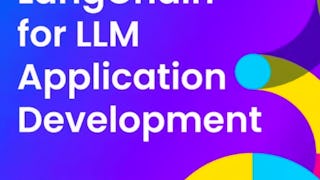Filter by
SubjectRequired
LanguageRequired
The language used throughout the course, in both instruction and assessments.
Learning ProductRequired
LevelRequired
DurationRequired
SkillsRequired
SubtitlesRequired
EducatorRequired
Explore the Regression Models Course Catalog
 Status: Free Trial
Status: Free TrialJohns Hopkins University
Skills you'll gain: Sampling (Statistics), Bayesian Statistics, Probability & Statistics, Statistical Inference, Statistical Methods, Statistics, Probability, Probability Distribution, Statistical Analysis, Biostatistics, Statistical Hypothesis Testing
 Status: Free Trial
Status: Free TrialUniversity of Colorado Boulder
Skills you'll gain: Statistical Hypothesis Testing, Statistical Analysis, Sampling (Statistics), Statistical Methods, Microsoft Excel, Probability & Statistics, Data Analysis, Regression Analysis, Probability Distribution
 Status: Free Trial
Status: Free TrialSkills you'll gain: Unsupervised Learning, Time Series Analysis and Forecasting, Supervised Learning, Machine Learning, Data Processing, Feature Engineering, Artificial Intelligence, Data Cleansing, Deep Learning, Statistical Analysis, Predictive Modeling, Classification And Regression Tree (CART), Regression Analysis
 Status: Free Trial
Status: Free TrialJohns Hopkins University
Skills you'll gain: Magnetic Resonance Imaging, Medical Imaging, Radiology, Data Analysis, Research Design, Image Analysis, Neurology, Statistical Analysis, Statistical Modeling, Data Processing, Statistics
 Status: Free Trial
Status: Free TrialNew York University
Skills you'll gain: Supervised Learning, Dimensionality Reduction, Unsupervised Learning, Applied Machine Learning, Decision Tree Learning, Machine Learning, Financial Trading, Financial Market, Reinforcement Learning, Scikit Learn (Machine Learning Library), Financial Services, Regression Analysis, Correlation Analysis, Exploratory Data Analysis, Portfolio Management, Python Programming, Artificial Neural Networks, Jupyter
 Status: Free
Status: FreeDeepLearning.AI
Skills you'll gain: LangChain, LLM Application, Large Language Modeling, Generative AI Agents, Prompt Engineering, Generative AI, Application Development
 Status: Free Trial
Status: Free TrialUniversidad de los Andes
Skills you'll gain: Data Ethics, Data Integration, Exploratory Data Analysis, Statistical Hypothesis Testing, Predictive Modeling, Correlation Analysis, Data Visualization Software, Classification And Regression Tree (CART), Data Quality, Data Science, Jupyter, Data Analysis, Statistical Machine Learning, Data Transformation, Data Cleansing, Business Analytics, Data Manipulation, Supervised Learning, Statistical Analysis, Regression Analysis
 Status: Preview
Status: PreviewColumbia University
Skills you'll gain: Statistical Inference, Regression Analysis, Statistical Methods, Statistical Analysis, Statistical Hypothesis Testing, Statistical Modeling, Machine Learning, Experimentation, Data Collection, Probability & Statistics, Research Design, Program Evaluation
 Status: Free Trial
Status: Free TrialSkills you'll gain: Immunology, Public Health, Anatomy, Molecular Biology, Infectious Diseases, Medical Terminology, Cell Biology, Microbiology
 Status: Free Trial
Status: Free TrialLearnQuest
Skills you'll gain: Blockchain, Key Management, Threat Modeling, Application Security, Computer Security, Public Key Infrastructure, Security Controls, Cryptography, Cybersecurity, Network Security, Information Systems Security, Data Security, Security Engineering, Vulnerability Assessments, Secure Coding, Cryptographic Protocols, Infrastructure Security, Encryption, Security Testing, Solution Design
 Status: Free Trial
Status: Free TrialUniversity of California, Irvine
Skills you'll gain: Salesforce, Data Quality, Data Modeling, Data Integration, Business Process Automation, Email Marketing, Data Security, Data Cleansing, Sales Enablement, Sales Pipelines, Data Management, Business Process, User Accounts, User Provisioning, Customer Relationship Management (CRM) Software, Dashboard, Sales Development, Customer Engagement, Automation, Cloud Computing
 Status: Free Trial
Status: Free TrialIcahn School of Medicine at Mount Sinai
Skills you'll gain: Molecular Biology, Pharmacology, Cell Biology, Physiology, Biochemistry, Biology, Bioinformatics, Mathematical Modeling, Electrophysiology, Systems Analysis, Simulations, Statistical Modeling
Regression Models learners also search
In summary, here are 10 of our most popular regression models courses
- Mathematical Biostatistics Boot Camp 1: Johns Hopkins University
- Statistics and Data Analysis with Excel, Part 2: University of Colorado Boulder
- NVIDIA: Fundamentals of Machine Learning: Whizlabs
- Principles of fMRI 1: Johns Hopkins University
- Fundamentals of Machine Learning in Finance: New York University
- LangChain for LLM Application Development: DeepLearning.AI
- Ciencia de datos: Universidad de los Andes
- Causal Inference: Columbia University
- Fundamentals of Immunology: Innate Immunity and B-Cell Function: Rice University
- Security for Blockchain and DApps: LearnQuest










